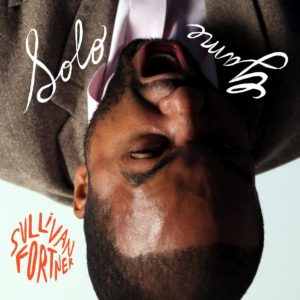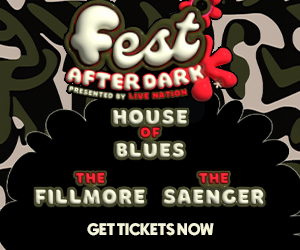Pianist Sullivan Fortner is perhaps better known nationally than in his hometown of New Orleans. That’s because the pianist headed out so soon after graduating from the New Orleans Center for the Creative Arts (NOCCA) to attend Ohio’s prestigious Oberlin College and Conservatory and then traveled to New York’s Manhattan School of Music. A hugely talented musician, he gained further recognition performing with the late great trumpeter Roy Hargrove’s band, an ensemble led by vibe player Stefon Harris as well as other groups, and heading up and recording with his own ensembles.
Disc one of the double album Solo Game finds Fortner alone at the acoustic piano exploring, elaborating and enhancing well-known tunes from the American songbook. It brilliantly begins with Stevie Wonder‘s “Don’t You Worry About a Thing,” that is ripe fruit for the pianist to harvest the free spirit of the tune. He captures the lightness in the touch of his right hand while providing the essential rhythmic emphasis in his left.
Richard Rodgers’ “I Didn’t Know What Time It Was,” is at once dreamy, romantic, exciting and appropriately perplexing. Fortner beautifully, slowly and deliberately asks the eternal question of the essence of love—his notes dance, come to a halt and resume the twirls.
The entire first disc shines with such gems that manage to retain their personalities while at the same time transforming into masterly reincarnations under Fortner’s care. Case in point is the playful interpretation of the late great Randy Weston’s “Congolese.”
The electronically-bent disc two becomes the yang to the previous disc’s yin and contains all Fortner originals. Dig the opening cut “It’s a Game,” with Fortner continuing on acoustic piano while incorporating an array of plugged-in instruments and haunting chants. The mysterious mood continues on “Snakes and Ladders” with the arrival of vocalist Cécile McLorin Salvant. Employing the piano’s low register, Fortner displays a darker side of existence on “Hounds and Jackal.” He apparently escapes the chase. The keyboardist turns to the organ’s gigantic resonance on “King’s Table.” Oddly, the album ends with dissertations on Fortner’s talents by fellow keyboardists Fred Hersch and Jason Moran.
Solo Game, especially disc one, satisfies with its familiarity and sense of fun in taking one around the “board” to a square on which one might not expect to land. Then there’s the wonder of the next “roll” of Fortner‘s magical musical dice.




